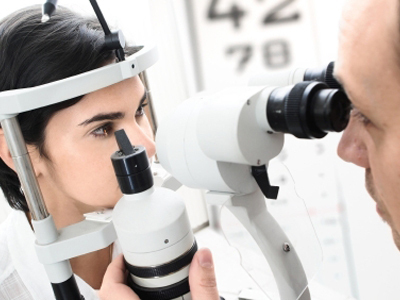Maintaining good vision comes down to a
healthy lifestyle and your genes, says ophthalmologist Dr Kerrie Meades, from
personalEYES in Sydney. “Glaucoma tents to be genetic, as does age macular
degeneration, which will make a difference to how your sight fares as you age.”

In your 40s…
Schedule in an eye check every two years
after turning 40
In your 50s and over…
“If you’re over 55, you need to come
annually,” says Meades.
Diabetes and your eyes
Poorly-controlled diabetes can lead to
diabetic retinopathy, severe vision problems and blindness. “If you’re under 20
with good control [of your diabetes], an initial consultation, then a five-year
follow-up is important,” says Meades. “If you’re in your 30s and have
well-controlled diabetes, an eye check every two years is reasonable. Diabetics
aged 40 and over with good control should have a yearly exam, but if you’re
noticing cataracts or signs of glaucoma you may need more regular visits.”
Blood pressure & cholesterol
Cholesterol and blood pressure levels are
signposts for your risk of cardiovascular disease. In terms of blood pressure,
doctors are looking for a reading a less than 120/180 mmHG. For cholesterol -
which is a test of good (HDL) and bag (LDL) cholesterol, and triglycerides
(blood fats) – the optimal total cholesterol level is under 5.5. “Over 6.5 is a
red flag,” says Dr Leon Massage, from the Body Metabolism Institute in Victoria.
In your 30s…
If you’re on the Pill, you need to have a
blood pressure check every three to six months – and an annual cholesterol test
if you have risk factors for cardiovascular disease, such as diabetes.
In your 40s…
“Over 40, if your blood pressure is normal
a check once a year is fine,” says Massage. “Cholesterol should be checked
every two years and more often if it’s high or borderline.”
In your 50s and beyond…
“You should have a cholesterol check every
year, unless your levels are consistently normal,” says Massage. “A blood
pressure check once a year is also recommended, unless you have hypertension or
a previous heart problem [when you should have checks more often].”
Diabetes
“Everyone over the age of 40 – especially
if you’re overweight or obese – needs a blood glucose test,” says Massage,
“because your risk factors for other conditions go up significantly if you do
have diabetes.”

Immunizations
“If you’re of childbearing age, rubella is
essential,” says Massage. “Whooping cough and tetanus boosters are important
too.” Don’t bother with the flu shot if you’re in good health, but shots are
available free to select groups including pregnant women, people over 65 and
those with underlying health conditions.
Bone density test
“Post-menopausal women should have a bone
density test done between the ages of 65 and 70,” says Massage, “and if you’re
over 45, have your vitamin D levels checked. We’re seeing more vitamin D
deficiencies, which can affect bone strength as well as immunity and general
health.”
Colon
cancer screening
It’s more common in men, but all adults
with no family history of the disease should be screened every two years after
the age of 50. “The FOBT [faecal occult blood test] is an easy test to do,
though it may be unpleasant,” says Massage.
3 top tools
Chemmart Health Checks
For $20, you can get a six-point check at a
Chemmart Pharmacy, which includes testing cholesterol levels, blood pressure
and blood glucose levels, www.chemmart.com.au
Dr K’s Breast Checker
This free iPhone app’s interactive tools
help you monitor changes in your breasts and provide automatic reminders.
Available from the Apple store.
My Health test Reminder
Join up, enter in your health checks and
nominate to be reminded via free emails or texts when your next Pap smear or
other tests are due. www.myhealthtestreminder.org.